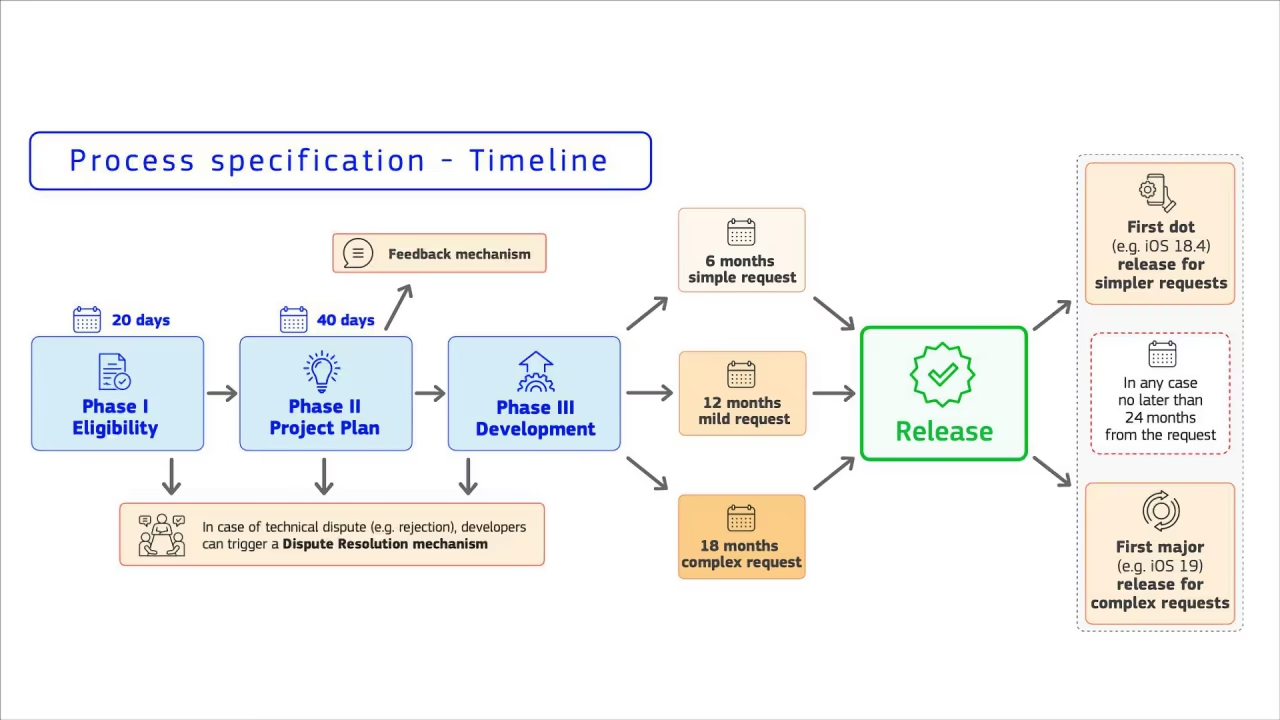EU Orders Apple to Open Nine iOS Connectivity Features for Interoperability

The European Union has officially ordered Apple to open nine key iOS connectivity features to improve interoperability with third-party developers and rival platforms. This ruling, part of the EU’s Digital Markets Act (DMA) enforcement, aims to reduce Apple’s control over its ecosystem and foster a more competitive digital environment.
What This Means for Apple and iOS Users
The EU’s decision mandates Apple to provide open access to these connectivity features, which have traditionally been restricted to Apple’s own services. This change is expected to benefit consumers by allowing seamless integration of third-party apps with core iOS functionalities.
Among the nine features Apple must open are:
- NFC access for third-party payment apps – Allowing alternatives to Apple Pay.
- Messaging app interoperability – Enabling cross-platform compatibility with iMessage.
- Default app selection – Letting users set non-Apple apps as defaults.
- Web browser choice – Reducing Safari’s dominance on iOS.
- Third-party access to widgets and APIs – Enhancing customization options.
Why Is This Happening?
The Digital Markets Act was introduced to curb anti-competitive practices by major tech companies classified as “gatekeepers”—including Apple, Google, and Meta. Apple has long maintained a closed ecosystem, arguing that its restrictions enhance security and privacy. However, the EU contends that these limitations stifle innovation and limit consumer choice.
By forcing Apple to open these features, the EU aims to level the playing field for competing developers, fostering greater competition and more consumer-friendly options.
Apple’s Response
Apple has expressed concerns about the security risks of opening iOS features to third parties. The company argues that greater interoperability could compromise user privacy and expose iPhones to security threats. However, under EU law, Apple must comply or face hefty fines—potentially up to 10% of its global revenue for non-compliance.
What’s Next?
Apple is expected to gradually implement these changes across iOS updates, with some features opening as early as 2025. Meanwhile, regulators will closely monitor Apple’s compliance, ensuring the tech giant does not impose unfair restrictions on third-party developers.
This landmark ruling could reshape the future of iOS—potentially leading to more customizable iPhones, enhanced third-party services, and a more open Apple ecosystem.
Stay tuned for further updates as Apple begins rolling out these changes!
for more…
